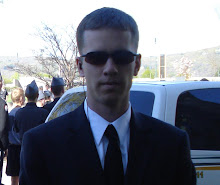General Ridgway was given command of the war in Korea in December of 1950 when the commanding general was killed in a vehicle accident. He immediately went about turning the attitudes of the UN/US forces, changing the focus from defensive to offensive. He was a straight shooter, never sugarcoating the facts of the matter. He knew that victory would mean exacting a high rate of casualties on the North Korean and Chinese forces, and he gave his operations names like Killer and Ripper. There was also some morale problems in the force, and he addressed this by writing a letter to the troops under his command upon taking over.
The letter addressed two questions: "why are we here?" and "what are we fighting for?". Ridgway says "the answer to the first question is simple and conclusive. We are here because of the decisions of the properly constituted authorities of our respective governments. As...Douglas MacArthur said: 'This command intends to maintain a military position in Korea just as long as the Statesmen of the United Nations decide we should do so.'...It is conclusive because the loyalty we give, and expect, precludes any slightest questioning of those orders." Now the applicability? I think you get some people in the armed forces today who ask the question "why are we here" if reference to their presence in Iraq or Afghanistan, although it probably is not as prevalent an attitude as it was in the Korean War. If you ever hear someone say "why are we here?", give them General Ridgway's answer, tell them the answer is simple and conclusive. You're here because you are an instrument of your nation's political will and the politicians sent you.
The answer to the second question, "what are we fighting for?", is much more complicated and not so simple and conclusive. General Ridgway tells his troops they are fighting to defeat communism, those who shoot their prisoners, enslave their citizens, and deride the dignity of man. It goes beyond securing the freedom of the Korean people, and becomes a fight for freedom for the US itself. As Ridgway says, this question is "of much greater significance, and every member of this command is entitled to a full and reasoned answer." It was true in 1950 and it is true today. The government position (remember I'm not a government spokesman) has been from the start of the "War of Terror" that we are fighting to deny safe havens for terrorists organizations that threaten our security. That's a very simplistic answer to the question, but I think it mostly holds true concerning the combat we are currently engaged in. There are of course follow-on questions that should be answered, such as "can we succeed in Afghanistan?", but that is far above my paygrade to answer.
Now to the crux of the matter...why was General Ridgway such a cool dude? First of all, he commanded the 82nd Airborne division (my destination unit) during World War Two, so he is automatically cool. Second, he was such a BAMF that he wore this hat.


No comments:
Post a Comment